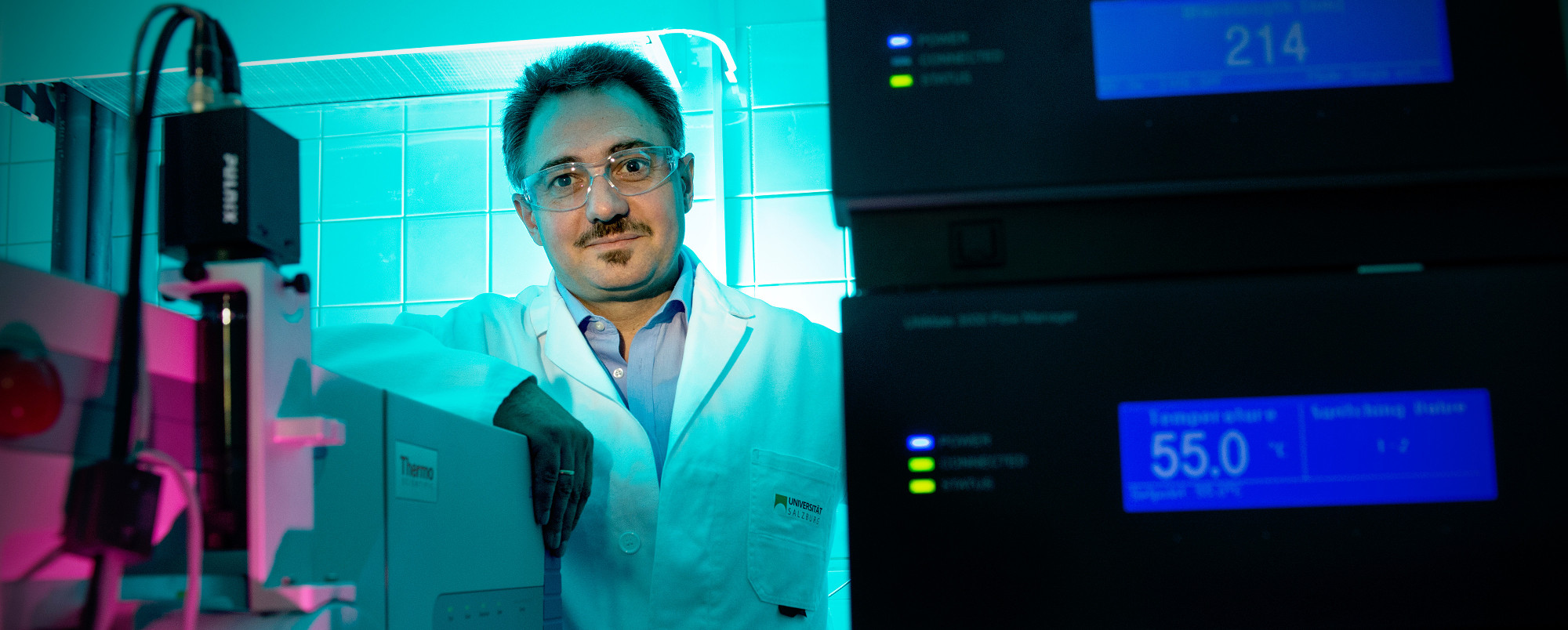
The research focus of our team regards the development and application of analytical workflows to address biological questions in the fields of protein, proteome, metabolite, and metabolome analysis. Samples comprising cultured cells, tissues, biological fluids, extracellular vesicles, or cell supernatants are processed and their constituents of interest (peptides, proteins, or metabolites) isolated for further determination. The analytical methods are primarily based on instrumental, bioanalytical separation methods (high-performance liquid and gas chromatography) in combination with mass spectrometry (quadrupole and quadrupole-Orbitrap mass analysis). Because of the enormous amount of generated raw data, we collaborate with bioinformaticians and statisticians in order to properly interpret the experimental data and put them into a biological context.
The major goal of our work is the collection of information about changes in protein or metabolite concentration that are caused by stimulation of cell models (cancer cells, CHO cells, dendritic cells, monocytes, hepatocytes, lung epithelial cells, Helicobacter pylori, CLL or AML cells) upon treatment with drugs, nanomaterials, or by diseases such as allergy or cancer (Group Molecular and Cellular Allergology, Fatima Ferreira, Group Molecular Immunology and Signal Transduction, Jutta Horejs-Höck, Group Microbial Infection and Cancer, Silja Wessler, Group Extracellular Vesicles and RNA Drugs, Nicole Meisner-Kober, Laboratory for Immunological and Molecular Cancer Research, Richard Greil and Nadja Zaborsky). These changes allow us drawing conclusions on the biochemical pathways and mechanisms involved in disease, toxic effects of drugs and nanoparticles, and intra- and intercellular communication.
In a second focus area we collaborate with the Technical University of Vienna (TU Wien, Prof. Ruth Birner-Grünberger) and the University of Natural Resources and Life Sciences (BOKU Wien, Prof. Nicole Borth) in the Austrian Science Fund-funded Research Group “Integrated digitalized production of protein therapeutics” (DigiTherapeutX, FWF FG12). Here, we use our expertise for the in-depth characterization of therapeutic proteins (peptide mapping, sequencing, determination of impurities, glycosylation, oxidation, and deamidation) in order to establish algorithms for the prediction and controlled adaptation of bioprocess variables to obtain desired product quality attributes during their production. This research focus requires intensive collaboration with groups of the department having expertise in structural biology (Group Structural Biology, Hans Brandstetter) as well as bioinformatics and process modeling (Group Computational Systems Biology, Nikolaus Fortelny).




